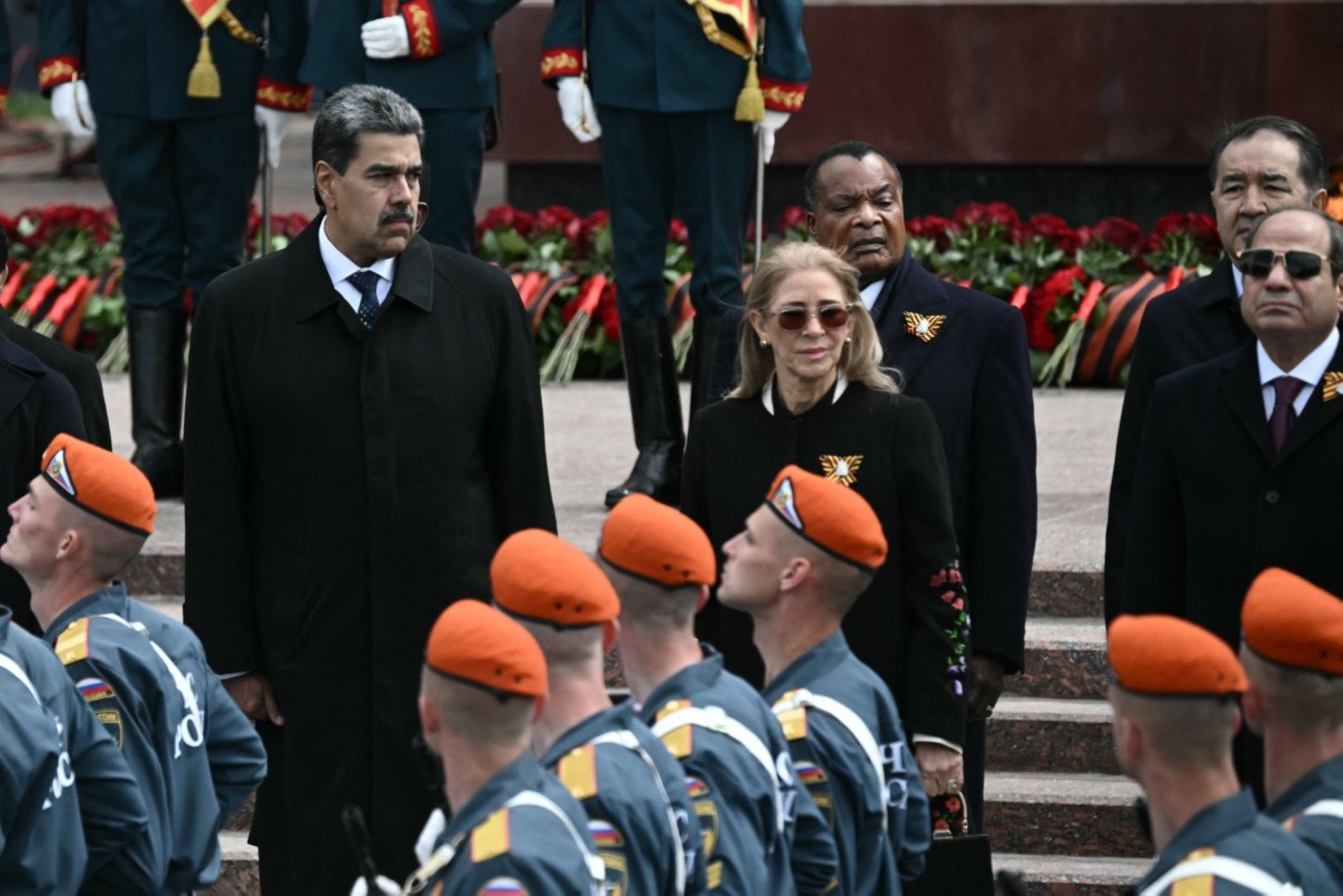Despite the overt business focus of US President Donald Trump’s visit to the Middle East this month, he likely chose this as his first official second-term foray to drive home a message: America has returned to the region.
The most significant moment of the tour came on 15 May, when he visited US forces based at Qatar’s Al Udeid Air Base and reaffirmed his readiness to use force to defend American partners if need be. “We are going to protect this country,” Trump said of Qatar at a business roundtable, noting its geographical proximity to Iran.
Who are Washington’s other close regional allies these days? For decades, Egypt—a major recipient of US military aid—would have featured high on that list, but days earlier, Egyptian leaders were in Russia’s capital to help President Vladimir Putin mark the country’s Victory Day parade in Moscow’s Red Square. Alongside Putin at this event was Chinese President Xi Jinping.

New friends, new jets
Egypt’s attendance will not have gone unnoticed by the US State Department, the only other Middle Eastern delegation having been that of Palestine. A short time later, Egyptian air force commanders celebrated a 45-year relationship with the Chinese state-owned defence company CATIC, which has just supplied Egypt with its advanced Chengdu J-10 fighter jets.
These planes showed their potency when used in combat for the first time earlier this month. Flown by Pakistan’s air force pilots, the J-10s fired Chinese-made missiles and downed several Indian jets over Kashmir, according to statements from Pakistan’s military.
The J-10s arrived in Egypt in September last year to take part in the first edition of the Egypt International Air Show. The same aircraft arrived at an airbase in central Egypt last month to take part in an unprecedented air exercise with the Egyptian air force.
None of this is happening in a vacuum. Egypt officially joined the BRICS group (led by China and Russia) in January 2024, as did Iran. Military exercises with China fit into a broad and dramatic change to regional alliances, with repercussions likely to be felt for decades.

Following the money
Egypt has a huge population of around 114 million, comprising roughly a third of the combined population of all Arab states. Thanks to US military aid since Cairo signed a peace deal with Israel in 1979, it also has one of the Arab world's most powerful militaries. Yet it is now clearly drifting away from the American orbit and into the arms of Russia and China.
At its core, Cairo wants comprehensive partnerships that go beyond weaponry but instead open the gates to capital and investment in other economic sectors.
Egypt is no stranger to either Russia or China. The Egyptian air force already includes Russian fighter jets and air defence systems, and Moscow is helping Egypt build a giant nuclear power plant and a big new industrial zone in the Suez Canal region, to which China is also contributing.
China is also investing in Egypt's New Administrative Capital. In terms of trade, both Chinese and Russian products are sold in Egyptian markets. Culturally, Egyptians are learning the Russian language, with Egyptian students seeking to study at Russian universities.










